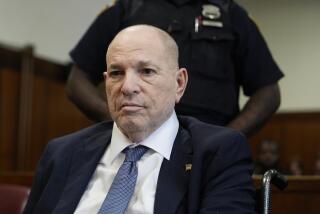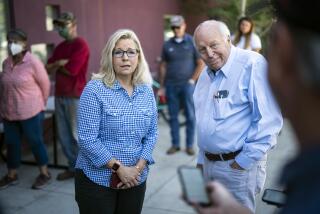Dick Cheney: The pros and cons of heart transplants for older patients
- Share via
Former Vice President Dick Cheney’s heart transplant Saturday at Inova Fairfox Hospital in Virgina highlights the fact that, while such operations may offer patients a new lease on life, they come with their own set of complications.
“It’s a long haul,” said Dr. Eric Topol, a cardiologist who serves as director of the Scripps Translational Science Institute. “The first few days is basically like healing from an open-heart operation … so mainly he would have a lot of discomfort in his chest wall.”
That’s just the beginning, added Topol, who was consulted when Cheney, now 71, suffered a heart attack around the time of the Florida recount during the 2000 presidential election. Doctors must administer drugs to suppress the immune system to keep it from rejecting the unfamiliar heart, watching the patient for weeks. They also must stick a catheter in a vein in the neck to reach into the body and pull out tiny pieces of heart tissue, in order to take a biopsy and study it for signs of early rejection.
Healing from such major surgery is always an uphill battle, perhaps especially for older patients, but in some ways they may have an advantage, experts said.
“Those that are 70 need to be quite healthy,” said Dr. Gregory Fontana, chairman of cardiothoracic surgery at Lenox Hill Hospital in New York. “Sometimes they do better than the younger patients.”
That’s because younger patients – those in their 20s, 30s or 40s – are often very ill and may have other medical problems that complicate their situation. Some of them even require multiple organ transplants – such as heart-kidney operations for patients with severe diabetes.
Here’s another silver lining for the gray-maned crowd: Because older patients generally have less robust immune systems, they may require less aggressive treatment to keep their immune system from attacking the new heart, Fontana added.
This, however, can be a double-edged sword, Topol warned, as a weaker immune system leaves patients more vulnerable to infections and even cancer.
Ultimately, heart transplants have likely become more common because life expectancy has improved, Fontana said. “People are living longer, they’re living healthier – and we’re doing better at getting older, frailer patients through surgery.”
Back when he first started in practice in 1993 at Cedars-Sinai Medical Center, Fontana said, patients older than 60 were often turned down around the country because they were “too old.”
Times, and technology, have changed. While waiting for a transplant, many patients’ hearts are outfitted with left ventricular assist devices – pumps that help the ailing organ do its job. Cheney reportedly had one implanted at Inova back in 2010. The devices have become advanced enough that they can increasingly be used as a lifelong solution in and of themselves rather than as a bridge to an eventual heart transplant.
“These devices are better, safer, more durable and, in fact, they really are the future,” Fontana said. “For most people, a transplant will be irrelevant when you have a machine that lasts longer and is more predictable than all the things that go along with transplantation.”
Would heart transplants one day be rendered obsolete? For now, said Dr. Abbas Ardehali, heart transplant surgical director at UCLA, a heart transplant is probably still preferable to a left ventricle assist device. “Because, as you can imagine, having a machine connected to your belt with a battery time of eight to 10 hours and all the paraphernalia is not a pleasant lifestyle,” Ardehali explained, “although Mr. Cheney has done well with that.”
Nonetheless, he added, “we will be seeing more LVAD as time goes on, because we have an unlimited supply of those. With heart transplants, there’s a limited donor supply.”
Representatives of Cheney were unavailable for comment on the vice president’s current status.
Follow me on Twitter @aminawrite.







